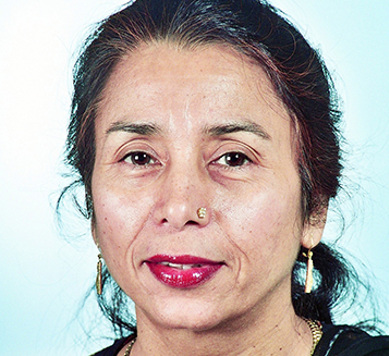Migration is defined to be “irregular” as soon as entry, stay, or employment is unauthorized. Recent data from some GCC countries suggests that the magnitude of irregular migration in countries such as Saudi Arabia exists at a fairly large scale, and may be substantial in the other countries. In addition to illegal entry, at least three other types of irregular migration may occur as a result of overstaying a work, tourist, dependent, or specific purpose (e.g., Haj or Umrah pilgrimage) visa, irregular employment situation emerging from visa trading or other factors, and running away from employer. Irregular migration is problematic for all parties including the sending and receiving countries as well as the migrant himself/herself both in terms of labor market inefficiencies and the possible risks for the migrant worker. The objective of this workshop is to document the role of legislation, policies, and practices in enabling and sustaining irregular migration in the Gulf. The workshop will focus on all the six GCC countries through case studies of each, along with major sending countries such as India, Egypt, Philippines, Indonesia, Bangladesh, and Pakistan.
3 DAYS / 10 Workshops
MORE THAN 200 ACADEMIC PAPERS
Background
Migration is defined to be “irregular” as soon as entry, stay, or employment is
unauthorized. It occurs not only when migrants violate regulations on the movement,
settlement, and access to labor of their host countries, but also when a change in
regulations affects the migrants’ situation, sometimes without them knowing that they are
infringing the law (Fargues 2012).
Relatively little published data are available on the number, types, or trends of irregular
migrants to the GCC countries. However, compilations from occasional newspaper
articles and reports about the response by irregular migrants to amnesty programs provide
some indication of the prevalence of this phenomenon in the Gulf. Relatively recent data
from Kuwait show that the country was home to about 124,000 irregular migrants who
had overstayed their valid visa duration in February 2011, with the largest percentages of
overstayers from Bangladesh, Egypt, and India (Table 1). During its last six month
amnesty from April 3 to November 3, 2013, Saudi Arabia carried out about 5.3 million
regularizations, either by renewing the residence visas or adjusting the employer or
occupation status of migrant workers (De Bel-Air 2014). Thus, the problem of irregular
migration in these two countries exists on a very large scale, and is probably substantial
in the other GCC countries also.
In most Western countries, irregular migration occurs as a result of illegal entry or
overstay of a valid visa. Occasionally, previously regular migrants may be rendered
irregular if the laws or regulations of the host country regarding such persons change.
Sometimes previously irregular migrants may be turned into regular migrants as a result
of regularization or amnesty.
Irregular migration in the Gulf countries may occur due to reasons similar to those of the
Western countries. While illegal entry is generally not considered to be large in most
GCC countries, records from Saudi Arabia show that a total of 609,332 infiltrators were
arrested from January to December in 2012 (www.gulfmigration.eu). Similar data are not
available for the other GCC countries. In addition to illegal entry, at least three other
types of irregular migration may be identified as follows: Overstaying a work, tourist,
dependent, or specific purpose (e.g., Haj or Umrah pilgrimage) visa;
irregular employment situation emerging from visa trading or other factors; and running
away from employer (Kapiszewski 2001; Shah 2009).
3
Irregular migration is problematic for all parties including the sending and receiving
countries as well as the migrant himself/herself. Such migration eludes measurement, is
difficult to regulate and manage, and hinders the protection of those in irregular
situations. It may have social and economic consequences that are not fully understood. It
is likely to put the migrant in a legally precarious situation where he/she may be forced to
hide and work in low paid and unregistered jobs in the informal sector of the economy. In
some cases, irregular status may result in economic, psychosocial, or sexual exploitation
of the migrant worker by a variety of agents.
During the last four decades, with the increase in demand for migrant workers, the GCC
countries have formulated laws, regulations, and policies to manage the migration
process in an orderly manner. At the same time, each of the major sending countries has
established an extensive set of laws, rules, regulations, and mechanisms generally
designed to promote migration of their workers. Specific guidelines to prevent and
minimize irregular migration have been put in place as part of the above processes.
Despite such efforts, many types of irregular migrants are present in the GCC countries,
as mentioned previously. The linkages between the persistence of irregular migration and
the various rules and policies meant to regulate migration are not well understood.
Objectives
The objective of this workshop is to document the role of legislation, policies, and
practices in enabling and sustaining irregular migration in the Gulf. We will focus on all
the six GCC countries through case studies of each country designed to fulfill the above
objective. Also, we will focus on the legislation, policies, and practices that initiate, and
perpetuate irregular migration to the Gulf from the major sending countries such as India,
Egypt, Philippines, Indonesia, Bangladesh, and Pakistan.
Applicants are invited to submit proposals addressing irregular migration in either a GCC
country or a major sending country. They should briefly document the legal framework,
as well as major policies and practices that are likely to enable and sustain irregular
migration in their chosen country, using specific examples. Applicants who have had
experience with researching and writing about irregular migration in the Gulf region will
be given preference. The workshop may also include a few invited papers.

